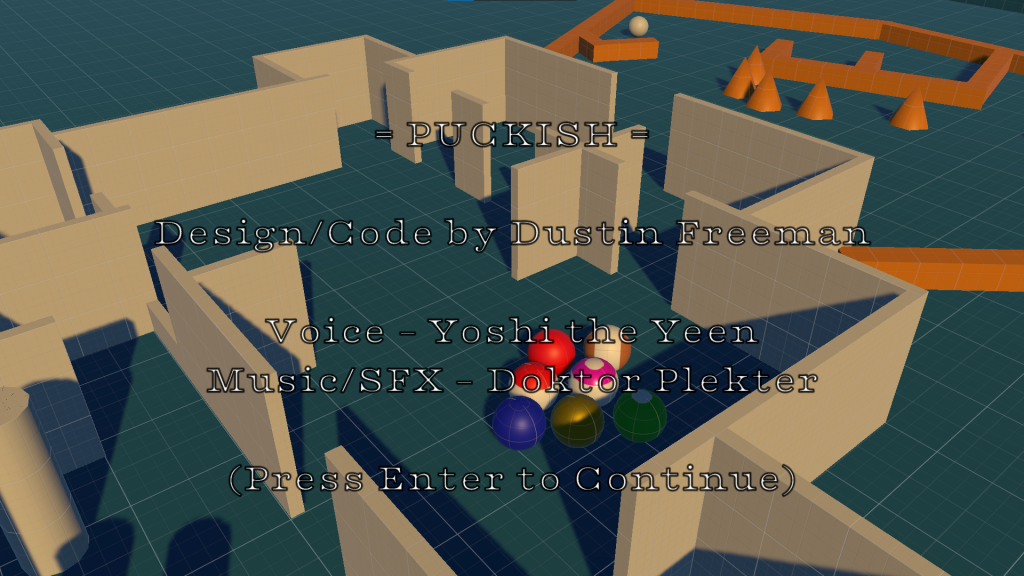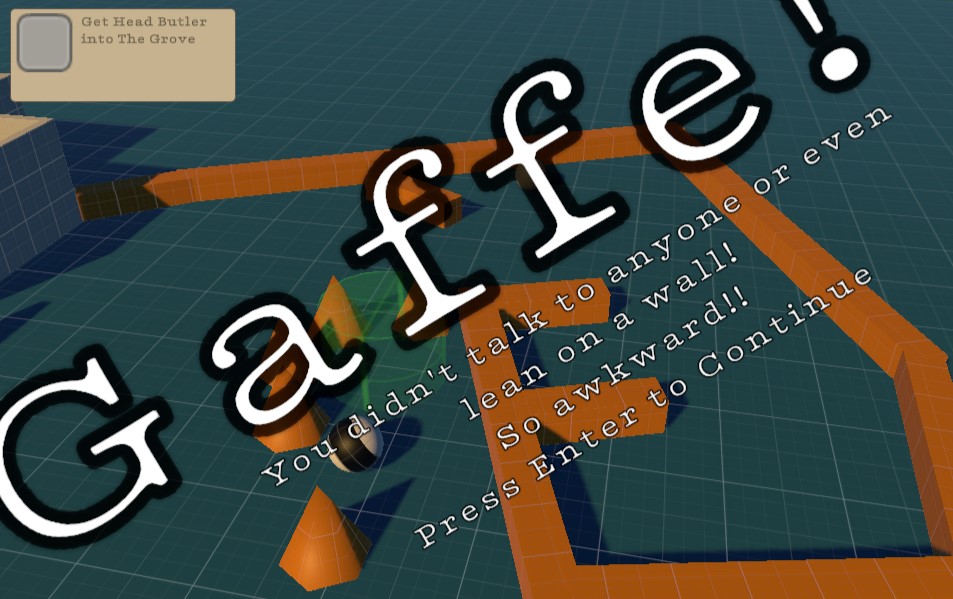I just finished nearly a whole month of travel, the last bit of which was in Latvia where I participated in a week-long game jam in a castle. Fellow game dev Charlie Behan made a great mini-documentary of the event. I’ve done a lot of game jams, and with this one, I needed to get an idea out of my head that had been hounding me for nearly 3 years.
Being locked-in for most of 2020 changed my relationship to space, and seeing. Two threads came together:
- I played Walkabout Mini Golf VR in a group of ~5 coworkers. We settled on a cooperative strategy where when it was someone’s turn, everyone else would position themselves around the course and search for the optimal shot. We spent a long time strategizing on shots before taking them.
- Lacking any in-person socializing, I spent a long time staring out the window at passers-by from several stories up. Like the protagonist in Rear Window, I invented personas and relationships based on how and where people moved through space, alone and relative to each other.
I synthesized that thinking deeply about physics-driven ball movement in a complex environment is the same kind of feeling as scanning a space full of people to understand their existing relationships, and strategize about changing them. Physics games like mini-putt, billiards or even bowling are the same kind of activity as a social gambit at a high society party, or keeping eyes on a would-be murderer in any Agatha Christie/Hitchcock scenario. The player/protagonist spends a lot of time observing: cataloguing and predicting outcomes based on action. Then, they take an action with the outcome matching their desired one based on skill (dexterity or charisma).
I called the game I made during the jam Puckish. You can play in the browser on desktop (not mobile) right now. The name comes from Puck, the mischievous character in A Midsummer Night’s Dream, whose supernatural action, going not quite as intended, set off a series of fun interactions that need to be resolved before the plot can come to an end.

My design target was to have the player spend 95% of the time thinking about their next shot, and 5% of their time taking it. Most video games encourage a very frantic level of activity, where the player is way more often taking action than evaluating and absorbing the environment. Aesthetically, this feels to me like wasteful fidgeting instead of deep thought; I wanted to bias towards the opposite extreme. I’m not sure I got to this desired ratio at the end of the jam, but I think I easily could in a future iteration by adding complexity to the game.
The jam ran Monday-Saturday. On Thursday, I hit a significant creative block: while the balls had names, and voices (thanks to the prolific Yoshi the Yeen – check out his other games), they did not actually feel like people. As a player, one did not strategically attempt to empathize with them as if they were complex individuals with inner worlds and relationships. Most suggestions I got from fellow game jammers were to add more dressing to the experience itself (voices, graphics, backstory paragraphs), but I knew these were distracting band-aids that didn’t solve the fundamental mechanical problem. My solution was the concept of a “gaffe”, as in a social gaffe. A gaffe feels like a sudden drop in background volume at a party because something has gone wrong; a record scratch. Fortunately, this is mechanically almost identical to when the player’s actions in billiards/golf require a resetting of the ball; called a scratch or foul.

When it comes to game design, I’m a vibes-based designer, and I’m happy that I got the vibes right, even though Puckish currently lacks depth as a game. I ran out of time to implement anything other than a single basic gaffe type, and a single dinner party scenario.
When submitting the game on itch.io, I had to define a genre and struggled to fit it into one. It’s partially a physics puzzle game, but also has a heavy narrative component; all the balls have names and relationships to each other. My placeholder genre joke for it is “Physics Novel” or “Physical Novel”.
Puckish will sit on a shelf for a couple weeks before I come back to consider fleshing it out more. (Tease: I will make a large physical install of Puckish in The Lower Case in August). For now, the code source is accessible on Github.
